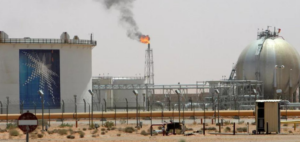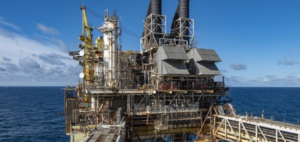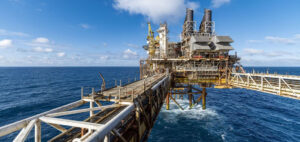EnQuest is making an appeal to Liz Truss, the new Prime Minister of the United Kingdom. The company is urging the government to put in place measures to encourage investment in the North Sea. The aim is to secure the UK’s energy supply at a time of continuing energy crisis.
Boris Johnson imposed a one-time 25% tax. This affects oil and gas producers in the North Sea. The revenues from this tax are intended to relieve households, which are heavily impacted by rising energy prices.
Unlike her predecessor, Liz Truss is opposed to the introduction of new, extraordinary taxes. It intends to focus on the issue of long-term supply.
EnQuest to increase drilling in the North Sea
According to Amjad Bseisu, CEO of EnQuest, the North Sea is a real opportunity for the UK. He argues that increased oil and gas drilling would help the UK. In fact, domestic production would be a real asset at a time when energy prices are soaring.
He states:
“It is our responsibility to provide opportunities to try to increase investment and production. So we’re very eager to engage on investments, investment incentives [dans les projets pétroliers et gaziers en mer du Nord], anything that the government wants to discuss with us, we’re open to that.”
EnQuest reports a strong increase in half-year revenues. This is an increase of 82% compared to last year. It reached $943.5 million. In addition, the company announced that it will invest $165 million to drill new wells. Thus, it is to mitigate the natural decline rates of its assets.
The North Sea, a solution to the energy crisis?
For EnQuest, the North Sea is one of the solutions to the current energy crisis. However, this view is not shared by all. In fact, environmental groups are opposed to increased drilling in the North Sea.
According to them, it would be more judicious to bet on renewable energies. This solution would, according to these groups, be less costly and faster. In addition, it would reduce the UK’s dependence on fossil fuels.
Doug Parr, a scientist with Greenpeace UK, explains:
“Unleashing a drilling frenzy in the North Sea is not a plan to help taxpayers, but a gift to the fossil fuel giants who are already making billions from this crisis. Pumping out new oil and gas could take a quarter century, will ultimately be sold at world prices, and will have no real impact on energy bills, while fueling the climate crisis.”
EnQuest wants to participate in the energy transition
Amjad Bseisu explains that his company intends to participate in the energy transition. Thus, EnQuest intends to invest in renewable energy.
In addition, the company plans to reallocate some existing infrastructure. This is the case for the Sullom Voe oil and gas terminal. The latter is located in Scotland, in the Shetland Islands. However, this takes time. Thus, the company is interested in the CCS. Opportunities could arise as early as 2023.
EnQuest has ambitions to electrify the Sullom Voe terminal. Salman Malik, the company’s CFO, says such opportunities could be realized within the decade.
Finally, renewable hydrogen could also be used on site. However, this solution is not feasible in the short term. S. Malik sees it as a “long game for 2030”.






















